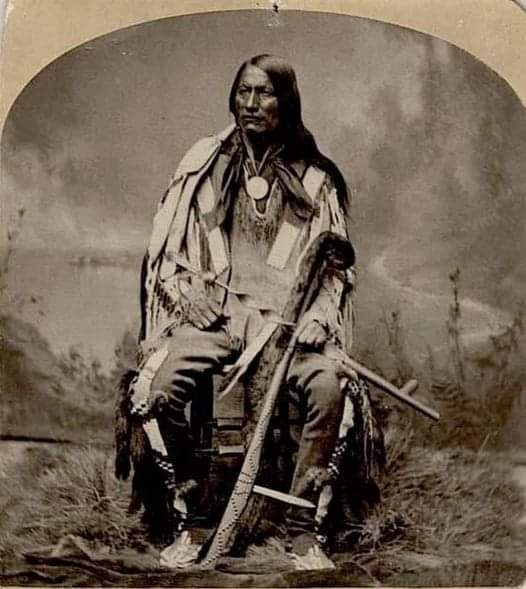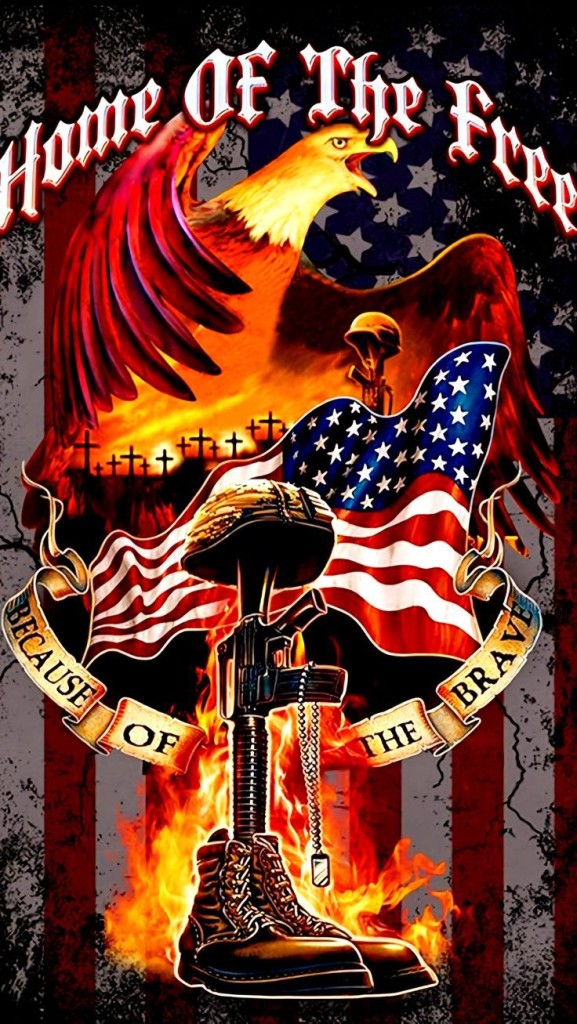John 13:38
Describe one of your favorite moments?
Lord, thank You for Your faithfulness. Even though I have let You down, Your promises never fail. Teach me to be wise in my words, so that I may make only the promises that I can keep. And give me the power to persevere and see my promises through, even when it seems difficult or impossible. In Jesus’ name, Amen.
The words of Jesus recorded in Scripture are among the greatest gifts God has given us. The one through whom all things were created, and from whom all things derive their meaning, speaks.
But what is the meaning of these words? How do we unwrap this gift? Faith comes through hearing, certainly, but we have to make sense of what we hear. We want to know not just the words of Jesus but the sense behind them, and here we get into deep water. In the use of words, He is greater than Homer, Shakespeare, and Dante, more profound than Aristotle, Confucious, and the Buddha.
At our three-day annual conference this year, Scott Hahn, Jimmy Akin, Tim Staples, Father Sebastian Walshe and many others will swim in these deep waters. It’s going to be wonderful. These speakers are not just scholars but are disciples who have spent their lives listening to Jesus and trying to understand
We might make big promises- especially to God. But when we find ourselves in a difficult situation where our promises matter most, can we uphold them? Jesus knows that sometimes our talk is bigger than our actions. And sometimes He gives us opportunities to see where our words get ahead of us to gently remind us to choose our promises carefully.

Lou Diamond Phillips: A Hollywood Survivor Navigates Fame, Family, and Legal Battles – Louis Diamond Phillips, born on February 17, 1962, in the Philippines at the Subic Bay Naval Station, has etched an unforgettable mark on Hollywood. From his iconic portrayal of Ritchie Valens in “La Bamba” to his roles in a diverse range of films and television series, Phillips’ career has been a testament to his versatility and talent.
Phillips’ early life was shaped by his multicultural background. Born to Lucita Umayam Aranas and Gerald Amon Upchurch, a Marine KC-130 crew chief, Phillips’ heritage is a blend of Scots-Irish and Cherokee descent on his father’s side. His father passed away when Phillips was young, leading to his adoption by his stepfather and the surname change to Phillips. Growing up in Texas, Phillips graduated from Flour Bluff High School in Corpus Christi in 1980, later earning a Bachelor of Fine Arts degree in Drama from the University of Texas at Arlington.
Phillips’ career took off in the 1980s with his breakout role as Ritchie Valens in “La Bamba” (1987). This biographical drama showcased Phillips’ ability to capture the spirit of the young rock ‘n’ roll star, earning him widespread acclaim. The following year, he starred in “Stand and Deliver” (1988) alongside Edward James Olmos. Phillips’ portrayal of Angel David Guzman, a gang member who transforms under the guidance of a dedicated math teacher, garnered him a Golden Globe nomination and an Independent Spirit Award for Best Supporting Male.
The success continued with “Young Guns” (1988), where Phillips played the outlaw Jose Chavez y Chavez. The Western, featuring an ensemble cast including Emilio Estevez and Kiefer Sutherland, was a hit, leading to a sequel, “Young Guns II” (1990), where Phillips reprised his role. In 1996, Phillips made his Broadway debut in the revival of “The King and I,” playing King Mongkut of Siam. His performance earned him a Tony Award nomination, further solidifying his reputation as a versatile actor capable of commanding both screen and stage. That same year, he starred in the action film “Courage Under Fire” as Staff Sergeant John Monfriez, a role that won him the Blockbuster Entertainment Award for Favorite Supporting Actor.
Phillips’ career in the late 1990s and early 2000s saw him taking on a variety of roles. He starred in the comedy-action film “The Big Hit” (1998) as Cisco and the drama “Brokedown Palace” (1999) as Roy Knox. His television work during this period included a recurring role in the sitcom “George Lopez” and a stint on the first season of “24” as secret government agent Mark DeSalvo. In 2003, Phillips made a cameo appearance alongside Harrison Ford in “Hollywood Homicide.” The mid-2000s also saw him exploring other facets of his career, including winning the second season of the NBC reality series “I’m a Celebrity…Get Me Out of Here!” in 2009. He also hosted “An Officer and a Movie” on The Military Channel, where he interviewed military and intelligence community members.
Phillips’ role in the TV series “Longmire” from 2012 to 2017 as Henry Standing Bear, a Native American and the best friend of the titular character, showcased his ability to bring depth to complex characters. His performance was widely praised and became one of his most memorable television roles. In the 2010s, Phillips continued to diversify his career. He appeared in the music video for Imagine Dragons’ “Radioactive” in 2012, which went on to become a massive hit on YouTube. In 2015, he played Luis “Don Lucho” Urzúa in “The 33,” a film about the 2010 Chilean mining accident, further demonstrating his knack for portraying real-life characters with authenticity.
Phillips has also ventured into writing and directing. He co-wrote the screenplay for “Trespasses” and HBO’s “Dangerous Touch,” and penned the feature “Ambition.” In 2019, Aethon Books published his debut novel, “Tinderbox: Soldier of Indira,” a science fiction retelling of a Hans Christian Andersen story, illustrated by his wife, Yvonne.
His personal life has seen its share of ups and downs. Phillips married assistant director Julie Cypher in 1987, but they divorced in 1990. He then had a brief engagement with actress Jennifer Tilly. In 1994, he married makeup artist Kelly Phillips, with whom he has three daughters. Their marriage ended in 2007 after a prolonged separation. Phillips later married makeup artist Yvonne Boismier in 2007, and they have a daughter together. Phillips has also been involved in legal issues, including arrests in 2006 and 2017 for disturbing the peace and reckless driving, respectively. Despite these challenges, he has remained a dedicated actor and activist, serving on the advisory council of The Coalition of Asian Pacifics in Entertainment and being actively involved in Native American causes.
Throughout his career, Phillips has received numerous accolades, including the Independent Spirit Award, Tony Award nomination, and a Blockbuster Entertainment Award. His commitment to his craft and his ability to navigate both Hollywood and Broadway have made him a respected figure in the entertainment industry. Phillips continues to work in various capacities, from acting to writing, and remains a prominent figure in Hollywood. His journey, marked by significant achievements and personal trials, offers a rich narrative of perseverance and talent in the ever-evolving world of entertainment.
Red Eagle or William Weatherford (1780 or 1781 – March 24, 1824) was a Creek chief. One of many mixed-race descendants of Southeast Indians who intermarried with European traders and later colonial settlers. Red Eagle was of mixed Creek, French and Scots ancestry.
He was raised as a Creek in the matrilineal nation and achieved his power in it, through his mother’s prominent Wind Clan, as well as his father’s trading connections. After showing his skill as a warrior, he was given the war name of Hopnicafutsahia. The Creek War (1813-1814), also known as the Red Stick War and the Creek Civil War, was a regional war between opposing Creek factions, European empires, and the United States, taking place largely in Alabama and along the Gulf Coast.
Red Eagle became increasingly concerned about the influx of European Americans onto Creek land and eventually led a group known as “Red Sticks,” bent on protecting their land, their way of life, and their people from intruders.
Eventually the smaller forces of Red Sticks and the larger opposing forces led by General Andrew Jackson came against each other. The conflict ended in the decisive defeat of the Red Sticks at The Battle of Horseshoe Bend, near modern-day Dadeville, Alabama. Terms were drawn up that provided far less land than the Creek tribe had previously held.
The quote attributed to Chief Red Eagle reads, “Angry people want you to see how powerful they are.
Loving people want you to see how powerful YOU are.”-End ID] ❤

Cheyenne Dog Soldier, 1840. The Dog Soldiers were the Cheyenne Elite, they formed their own bands within the Cheyenne Nation, they often gave their own lives to protect their women and children, they were very much feared by the white Soldiers, and their Native American Foes, Pawnee, Ute, to name but a few, however, they where honoured Allies of the Lakota Sioux, and the Arapahoe’s, Comanche’s and Kiowa’s, the mention of the words “Cheyenne Dog Soldier”, put Fear into the most hardest of white Soldiers, they are still the most famous warrior society on Earth today. AHO. Please (follow + ) us to know more things that knowledge cannot be found in books, school ! Thank you for your interest ❤️

“Sioux Chief Long Wolf & Family”, ca. 1880.
~ “A Stranger Hears Last Wish of a Sioux Chief
Long Wolf went to London with Buffalo Bill’s show and died there in 1892. Thanks to the struggles of a British homemaker, his remains will be returned home.”
May 28, 1997 |WILLIAM D. MONTALBANO
TIMES STAFF WRITER
BROMSGROVE, England — “After a restless century in a melancholy English graveyard, the remains–and the spirit–of a Sioux chief named Long Wolf are returning to his ancestral home in America because one stranger cared.
The stranger is a 56-year-old English homemaker named Elizabeth Knight, who lives in a small row house with her husband, Peter, a roof repairer in this Worcestershire village near Birmingham.
“I am a very ordinary sort of person,” she said.
The sort who writes letters, not e-mail, who makes no long-distance phone calls, has no fancy degrees, has little worldly experience, who never gets her name in the papers. The sort who turns detective and historian and raises a transatlantic fuss because her heart is moved and her sense of fair play is outraged.
This is the story of how heirs of Middle England and the Wild West have joined forces to fulfill a dying wish made more than a century ago.
For Knight, the story began the day in 1991 that she bought an old book in a market near her house. There was a 1923 story by a Scottish adventurer named R. B. Cunninghame Graham that began this way: “In a lone corner of a crowded London cemetery, just at the end of a smoke-stained Greco-Roman colonnade under a poplar tree, nestles a neglected grave.”
In the grave, under a stylized cross and the howling image of his namesake, lies Long Wolf. He died at 59 in a London hospital on June 11, 1892, the victim of bronchial pneumonia contracted in what was then a crowded, dark, gloomy, industrial city as far as anywhere on Earth from the Great Plains of North America.
“I was moved. I kept taking the book down, imagining Long Wolf lying there amid the ranks of pale faces

“Truth is like the sun. You can shut it out for a time, but it ain’t goin’ away.” —Elvis Presley, Cherokee
History is not there for you to like or dislike. It is there for you to learn from it. And if it offends you, even better. Because then you are less likely to repeat it. It’s not yours for you to erase or destroy.


American Indian Dog
It’s not a wolf, and it’s not a coyote; it’s an American Indian dog. known for its long, pointy ears, thick coat, intense stare, and impressive build.
These working companion animals were almost lost to history after our American Indians were segregated onto reservations, and often left without the resources necessary to maintain the ancient breed.
According to the experts at Animal Corner, the Native American Indian Dog is believed to be up to 30,000 years old. Yes, it’s possible that the breed shared parts of North America with some of the earliest Native Americans to inhabit the land. Some specialists have theorized that the Native American Indian Dog breed could even be the missing link between wolves and the modern dog as we know it today.

𝐂𝐨𝐧𝐢𝐜𝐚 𝐖𝐚𝐧𝐢𝐜𝐚 –𝐍𝐨 𝐅𝐥𝐞𝐬𝐡
Lakota 89 years of age living at Pine Ridge Reservation and a well known associate of Chief Sitting Bull sang the following. He stated that Sitting Bull sang this soon after the Custer
Fight June 1876. This same song with words and melody was adopted by the Lakota as “parade song” and it is still in use to this day whatever
occasion demands.
“Kola taku otehika Friends things (troubles) most difficult
Imakuwa pe pursue me Hena kowakipe sni le waun of these fearless of i live (survive)”
No Flesh sang the following song. Sitting Bull sang this while he wasen route to Was’_ington, D. C., on Tribal matters pertaining to the cession of Black Hills Country.
“Kola taku yakapelo
Friends what are you talking about?
Pahasapa kin mitawa yelo
The Black Hills belong to me
Epin na blihe miciye
Saying this I took fresh courage.”
– 25 Songs made by Sitting Bull, compiled by Robert High Eagle 1928.
‘Throughout history, long hair has been more than just a style—it’s been a potent symbol of masculinity and strength across diverse cultures. From the valiant Greeks celebrated in epic poems for their majestic tresses to the fierce Norse and Native Americans revered for their glossy manes, and the stoic Japanese samurai who regarded their hair as a badge of honor, lengthy hair has always had significance. Vikings proudly displayed their braided hair, and for a samurai, to lose his hair was to lose his dignity.
In stark contrast, the cutting of hair was often used as a method of humiliation for captured warriors, reducing their sense of beauty and honor. This tradition persists subtly in modern military practices, where new recruits are shaved bald to diminish their individuality and ensure conformity.
The preference for short hair emerged in the Roman period, between the 1st and 5th centuries AD, primarily for practical battlefield reasons—it prevented foes from seizing a soldier by his hair and improved the ease of recognizing allies.
Today, despite its deep historical roots connecting long hair with freedom and masculinity, men who choose to keep their hair long often encounter ridicule or are disparagingly labeled as effeminate. This is a significant misunderstanding of the historical context, where short hair, now seen as the norm, deviates from the age-old emblem of masculine strength and autonomy.





